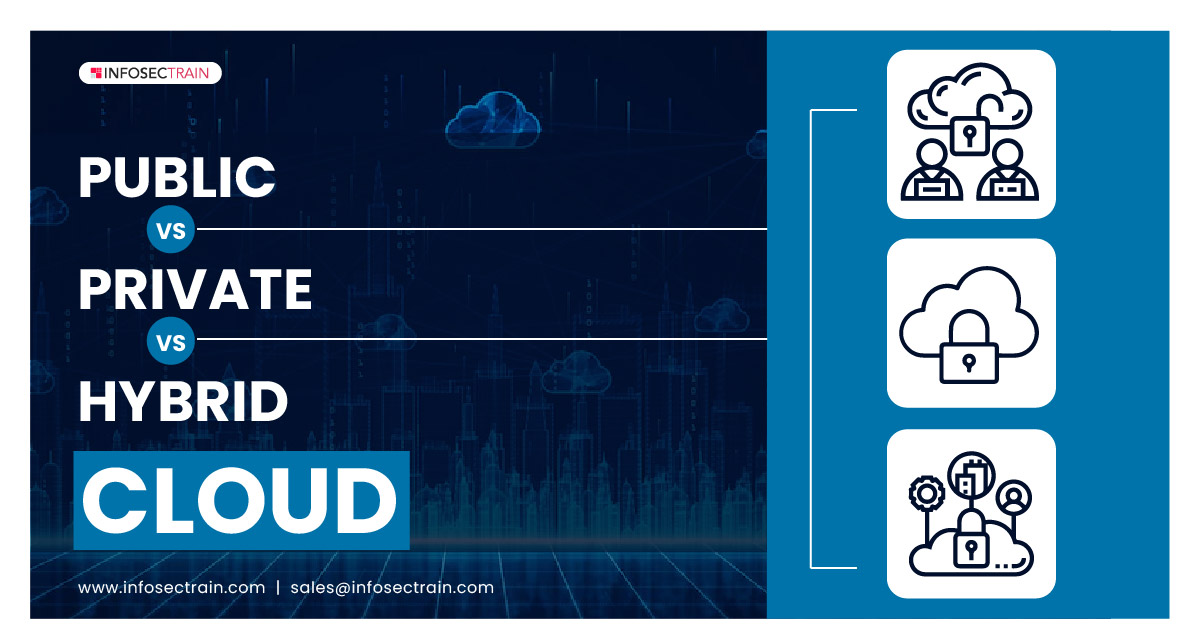The
statement "cloud computing is growing over the world" is no longer
adequate to describe the impact of cloud infrastructure. By using cloud technology,
almost every company has come a long way in evolving its IT infrastructure.
It's not just a bunch of products to be put in place. Cloud Computing is the
pool of virtualized resources. It enables us to develop, configure, and
personalize our applications online. Public, private, and hybrid clouds are
types of deployments for cloud computing.
So here in this article, we will discuss public vs. private vs. hybrid cloud.
1. Public Cloud
The most common way to use cloud services is through the public cloud. A third-party service provider owns and operates a public cloud service and is responsible for regular maintenance of the cloud services and infrastructure.
2. Private Cloud
A single organization or entity owns and operates a private cloud. In a private cloud environment, the hardware, software, and related infrastructure are stored either in the organization's data center or a regulated service provider.
3. Hybrid Cloud
The hybrid cloud is a cloud computing platform that combines private and public cloud services in a repeating event. This cloud enables users to transfer data and apps across public and private clouds.
Public vs. Private vs. Hybrid Cloud
|
Public Cloud |
Private Cloud |
Hybrid Cloud |
|
|
|
How can
InfosecTrain help you?
InfosecTrain offers a wide range of cybersecurity
and cloud certification training courses that cover all the skills required to
advance your knowledge of cloud computing. If you want to learn more about
these cloud deployment models, check out InfosecTrain's Microsoft Azure Fundamentals and AWS Cloud Practitioner courses. These
courses will provide you with industry recognition and help you gain an
in-depth understanding of cloud computing.

